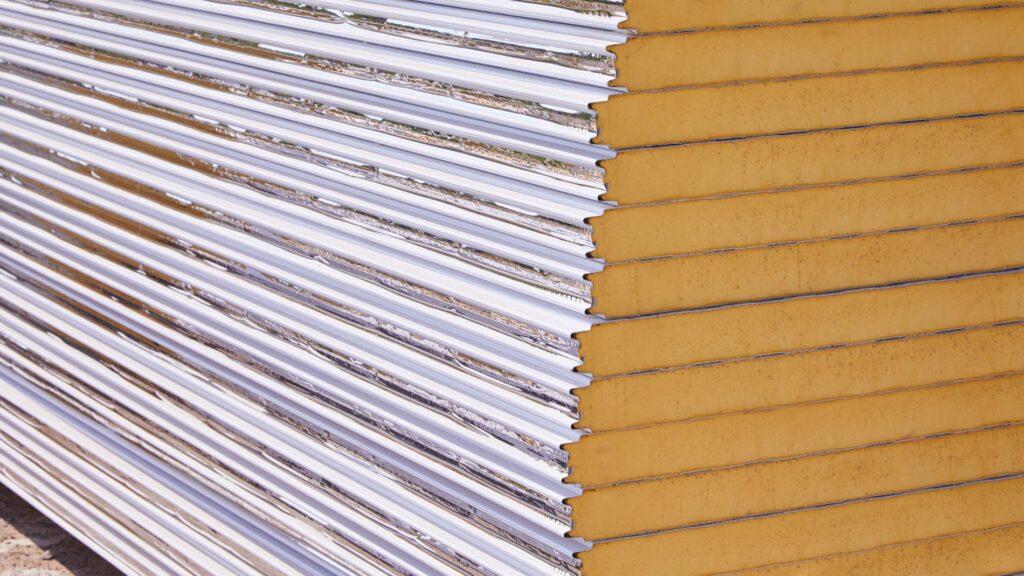
Insulation cores in sandwich panels – types, properties and applications
Insulation cores are a kind of heart of any sandwich panel. On the one hand, they guarantee adequate thermal insulation properties of the building, and on the other – safety in case of fire. There are several types of cores and each has slightly different properties, which in turn determine their use.
Thermal insulation in construction
Anyone planning to build a house or renovate it has heard of thermal insulation. This is because this parameter plays a very important role in the context of the energy requirements of a building and largely determines the costs that the use of a building will entail.
Thermal insulation is, in short, the ability of a property to retain heat. The better the insulation, the less generated heat „escapes” to the outside. However, investors – whether private or institutional – do not have much choice over this parameter. From 2021, according to the WT standard, the maximum permissible U-value cannot exceed 0.20 W/m2. This, in a way, forces the choice of building materials with better thermal properties. And here we come to the issue of insulation cores.

Three variants to choose from
We use three insulation cores. Each differs in the degree of innovation and thus in the performance achieved. Let’s take a closer look at them, starting with the most modern variant.
QuadCore™
This is our company’s proprietary technology, illustrating a completely new quality of technical thermal insulation. In it, we focused on making the material as compatible as possible with the requirements of sustainable construction. Thus, we obtained a core with high energy-saving potential, fitting into even the most modern investments and meeting the expectations of the most demanding users.
Key features:
- A heat transfer coefficient of only 0.018 W/m2.
- Thermal insulation efficiency 20% better than standard solutions.
- Lowest smoke generation rate in its product class.
- High durability – 40 years after installation, the core has the same properties.
- It does not contain CFCs.
IPN
This is another insulation core developed by us. It also makes it possible to achieve thermal insulation better than many standard solutions. It is based on polyurethane foam.
Highlights:
- Small thickness of the sandwich panel and at the same time very low heat loss – at only 0.0224 W/m2.
- Odorless, chemically inert, CFC-free. Safe for human health and the environment.
- With high resistance to mold and mildew growth.
K-Roc® made of mineral wool
Insulation cores made of mineral wool are a standard solution, used in buildings of various types. In favor of such insulation is its total noncombustibility (fire resistance), good heat transfer coefficient (0.0400 W/m2), vapor permeability and flexibility. The high value of sound insulation is also not without significance. It should be noted, however, that a sandwich panel with this type of core must be significantly thicker to achieve a favorable U-value; compared to QuadCore™, it must more than twice as thick (9 cm to 20 cm).
Ten tekst to nie tylko informacje, ale i inspiracja do głębszego myślenia.